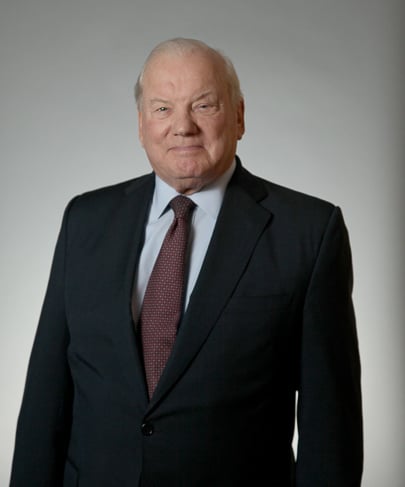Gaming & Hospitality Legal News: Volume 11, Number 8
Download PDF- Sukkar, Suzanne K. Lipton, K.C., Michael D. Weber, Kevin J.
- Industry Alerts
Click “Subscribe Now” to get attorney insights on the latest developments in a range of services and industries.
New USCIS ‘Deportation’ Policy May Impact Legal Foreign Artists and Entertainers
By Christian S. Allen and Suzanne K. Sukkar
Earlier this summer, US Citizenship and Immigration Services (USCIS) published new guidance for how their officers should handle what we call a “Notice to Appear” (NTA). An NTA is essentially notification to a foreign national in the US that the government feels he or she is “removable” (deportable), and that their name and file has been referred to the immigration courts for a removal hearing before a judge.
Past Practice
Historically, NTAs have been fairly uncommon in the business, sports and entertainment immigration world. In the rare instances where a foreign worker, athlete, or entertainer has fallen out of status in the US, it is usually due to a technical violation of the terms of their stay, often completely unbeknownst to the individual. For most of those people, there has been a relatively straightforward way to correct whatever minor status violation occurred, and then to “reset” their lawful status and work authorization in the US, without any long-term harm or impact to the foreign national. Not anymore.
New Policy
Under the terms of this new policy, USCIS officers will now be required to issue an NTA to every person who is “not lawfully present” in the US at the time that any application, petition, or request for an immigration benefit is denied, regardless of the reason. If implemented as written, this will have a direct impact on unsuspecting employers, employees, and performers, including those who have been legally working or performing in the US for many years. Here’s how.
Take the common example of an H-1B, O-1, or P-1 temporary worker who has been maintaining their status in the US. In-country extensions of their status and work authorization are routine; and, temporary staffing needs or event/performance schedule changes are extended frequently. Employer/Agent petitions to the USCIS to request an extension can usually be filed up to 180 days in advance of the upcoming expiration. The USCIS often takes longer than that to finish their review of the extension request, but there is an old regulation which allows the individual to continue living and working in the US for up to an additional 240 days, while waiting on the USCIS’ decision.
Again, historically, if the USCIS sought to deny the extension request, the sponsoring employer/agent or individual could provide additional supporting evidence for the benefit sought; sometimes, the extension petition could simply be refiled, if there was a clearly erroneous denial by the USCIS officer (an all-too-common occurrence). The individual may have been forced to depart the US and return home temporarily, but ultimately would reenter the US and resume their employment upon final USCIS approval.
However, if the USCIS now issues an NTA in the above scenario, the individual and sponsor will be immediately precluded from clarifying any confusion with their original filing, or from re-filing to correct an officer error. Instead, the individual will be placed into a long and convoluted immigration court removal proceeding. While they await a resolution from an already overwhelmed immigration court system, they will lose their underlying work authorization, and will also be unable to simply depart the US to wait back in their home country. Departure before an immigration judge’s order triggers a 5-year bar to reentry (even if/when the USCIS ultimately approves the employer’s extension request).
Consequences for Employers, Athletes, Artists, and Entertainers
Sponsors, including professional sports leagues, major record labels, motion picture or television industry companies, gaming companies, studios, galleries and others in the athletic, arts and entertainment world are trapped in this conundrum and will lose valuable talent and support personnel who have been lawfully working in the industry, often for years, and in whom the business has invested significant resources, including paying for multiple, successful extensions in the past. Athletes, artists and entertainers will risk disruption to their athletic or performance schedules, cancellation of events, loss of associated revenue, and possible contractual violations with venues (if those contracts exist). The only option for most employers and the foreign national will likely be to pay a hefty, additional filing fee to the USCIS for expedited (“premium”) processing, to ensure that any arguments from the government (well-founded or not) can be resolved before the underlying status expires. Alternatively, individuals could choose to fly outside of the US before their underlying status expires, whenever USCIS processing backlogs delay extension approval beyond their expiration; also a costly prospect for everyone involved and disruption to work schedules. It will become very important for all parties involved to plan ahead and file extension petitions early in order to minimize disruption to employment while in the US.
Conclusion
This is but one of many examples of unintended consequences of this new NTA policy on employers of lawful foreign workers currently in the US. Stay tuned for even more detail and legal analysis on this topic soon from the DW Immigration Group.
UPDATE: The USCIS just announced a temporary delay in implementation of the new NTA policy, while they update specific, “operational guidance” instructions to officers throughout the US. However, it appears likely that the new policy will go into effect immediately after that guidance is issued.
About the Authors: Christian Allen and Suzanne Sukkar are senior attorneys in Dickinson Wright’s Troy and Ann Arbor offices respectively, where they both practice exclusively in the area of immigration law. Chris can be reached at 248-433-7299 or CAllen@dickinsonwright.com, and Suzanne can be reached at 734-623-1694 or SSukkar@dickinsonwright.com.
Québec Appeals Superior Court Ruling that Bill 74 is Unconstitutional
Michael D. Lipton Q.C., Kevin J. Weber, and Chantal A. Cipriano
In August 2018, the Attorney General of Québec announced its intention to appeal the decision of the Superior Court of Québec, which held that the Québec government’s controversial attempt to force Internet Service Providers (“ISPs”) to block certain iGaming sites is unconstitutional.
Background
As discussed in our article last month, see “Quebec’s Superior Court Rules that Bill 74 is Unconstitutional,” on May 17, 2016, the Québec government passed the omnibus Bill 74, which contained unprecedented Internet-censoring provisions. Bill 74 introduced amendments to the Consumer Protection Act that would purportedly restrict illegal online gambling by requiring ISPs to block persons in Québec from accessing unlicensed iGaming websites.
Two months after the enactment of Bill 74, a group of Canada’s largest ISPs commenced legal proceedings and sought a declaration from the Superior Court of Québec stating that the amendments encroached upon federal jurisdiction and, therefore, were unconstitutional and of no force and effect. Concurrently in July of 2016, the Public Interest Advocacy Centre (“PIAC”) also filed an application with the Canadian Radio-television and Telecommunications Commission (“CRTC”) objecting to the law on similar grounds. Shortly thereafter, in September 2016, the CRTC temporarily suspending PIAC’s application while the constitutional issues went before the courts.
On July 24, 2018, the Superior Court of Québec held that the provincial rule creating mandated ISP blocking for unlicensed iGaming sites that compete with Loto-Québec is unconstitutional and ultra vires the powers of the Province. Although consumer protection is a matter of provincial jurisdiction, the Court concluded that both the object and the effects of Bill 74 encroached upon two areas of exclusive federal jurisdiction: telecommunications and criminal law. As a result, the legal and practical effects of Bill 74 were outside of the scope of the provincial jurisdiction.
The Court’s ruling was a major loss to Loto-Québec as the Court concluded that the impugned measure was designed to prevent competitive iGaming sites from being available in the Province rather than to protect Québecois consumer health as Loto-Québec had suggested.
The Québec Government Appeals Ruling of the Superior Court
On August 21, 2018, the Attorney General of Québec filed a Notice of Appeal with the Québec Court of Appeal. The provincial government submitted that the trial judge erred in his determination of the true character of the impugned provisions when assessing the “pith and substance” of Bill 74. Citing the Parliamentary debates, the provincial government asserted that the purposes of the legislation—gaming, consumer protection, prevention of crime, and public health—are intra vires the Province. In its Notice of Appeal, the Attorney General rejects Justice Nollet’s conclusion that the true purpose of the legislation was to thwart competition in an effort to increase Espacejeux’s market share and consequentially enable the Province to earn more money. To this end, the Province recognizes that although it will derive income from the enactment of the Bill, this fact is neither incompatible with nor does it negate the legitimacy of the stated goals.
The Attorney General further submitted in its filing that the provincially regulated activity of crime prevention could not be invalidated on the basis that its enforcement incidentally relates to the federally regulated telecommunications industry. Lastly, the Attorney General submitted that the trial judge wrongfully disregarded the provincial aspect applicable to the regulation of gaming activities as affirmed by subsections 92 (13) and (16) of the Constitution Act.
If the Québec Court of Appeal sides with the Attorney General, it may overrule the decision and reinstate the constitutionality of Bill 74. The timeline of the Province’s appeal is unknown, but it is expected to take at least several months.
Anticipated Impact on the iGaming Industry
What is certain is that the Superior Court decision is a blow to the provincial monopolies across Canada, which seek to maintain the exclusive control of iGaming in Canada under the monopoly established by the Criminal Code. The Superior Court ruling has sent a message to provincial governments: attempts to instigate Internet site-blocking schemes to further a province’s goals, whether economic or otherwise, will likely to be unsuccessful. Deference must be accorded to the CRTC and, given its cautious attitude towards using its designated power to block websites, it seems unlikely that a province will be successful in its attempt to do so. As a practical consideration, if the decision of the Superior Court is reversed, Bill 74 would require Canadian ISPs to invest in new and expensive infrastructure to engage in the requisite blocking capabilities, the costs of which are likely to be subsidized by consumers nationally.
Will the Québec Court of Appeal uphold the decision that represents a crack in the provincial iGaming monopoly? Will it encourage offshore iGaming sites to continue to target Canadians? Only time will tell.
Michael Lipton and Kevin Weber are Partners and Chantal Cipriano is an Associate in Dickinson Wright’s Toronto office. Chantal can be reached at 416.646.6864 or ccipriano@dickinsonwright.com. See the masthead for the contact information of the other authors.
Disclaimer: Gaming & Hospitality Legal News is published by Dickinson Wright PLLC to inform our clients and friends of important developments in the fields of gaming law, federal Indian law, and hospitality law. The content is informational only and does not constitute legal or professional advice. We encourage you to consult a Dickinson Wright attorney if you have specific questions or concerns relating to any of the topics covered in Gaming & Hospitality Legal News.
Related Practices
Contacts
Recent Insights
- Industry Alerts Recent DHS and DOL Rule Changes to the H-1B Program
- Industry Alerts In-Person Interviews to be conducted for Employment-Based Adjustment of Status Applicants
- Industry Alerts USCIS Suspends Premium Processing for H-1B Petitons Beginning April 3rd
- January 03, 2025 In the News Law360 recently published Michael Beckwith’s article, “5 Notable Anti-Money Laundering Actions From 2024,”
- January 2, 2025 In the News Four Dickinson Wright Lawyers Recognized in Who’s Who Legal Canada 2024
- September 26, 2024 In the News Five Dickinson Wright Lawyers Recognized in the 2025 Edition of Chambers Canada
- August 29, 2024 In the News Eight Dickinson Wright Lawyers Ranked in Best Lawyers in Canada® 2025 Edition, Two Ranked in “Ones to Watch”
- July 12, 2024 In the News Check out Jacob Frenkel on CNBC’s Squawk Box segment, “Regulating meme stock mania: Should you tame the ‘Roaring Kitty’?”
- July 12, 2024 In the News Ten Dickinson Wright Attorneys Recognized in 2024 Mountain State Super Lawyers



